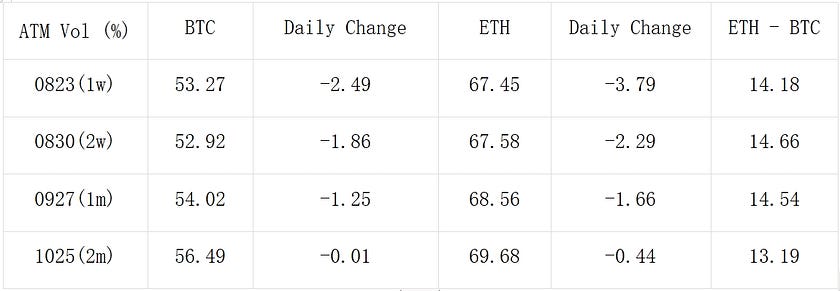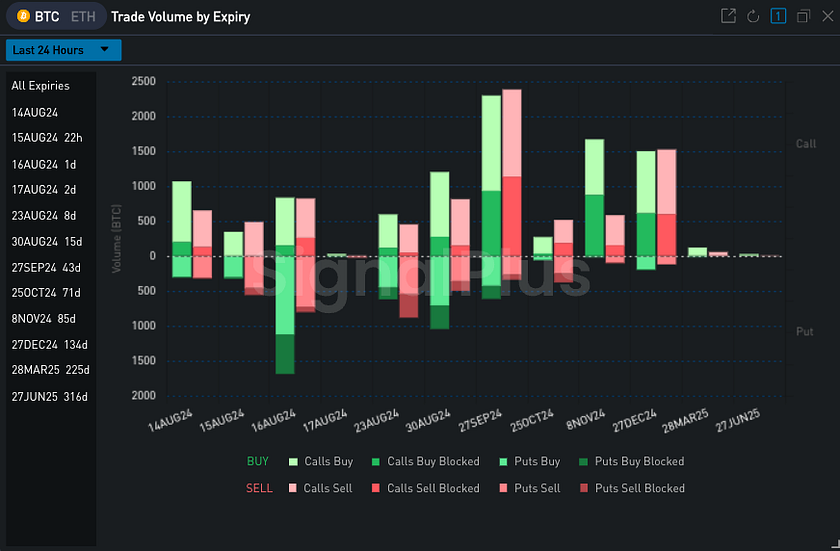 On August 13, the U.S. Producer Price Index (PPI) for July rose by 2.2% year-over-year, which was below expectations and marked a significant decline from previous values. Ahead of today’s CPI release, traders increased their bets on the Federal Reserve easing its policies. The yield on the 10-year Treasury note reported a recent low of 3.838%, and the 2-year yield dropped below 4%, reporting at 3.941%. U.S. stocks were collectively boosted by this news (Dow Jones +1.04%, S&P 500 +1.68%, Nasdaq +2.43%), helping Bitcoin to break above $60,000 (closing at $60,874, up 2.75%) and Ethereum to surpass $2,700 (closing at $2,725, up 2.75%).
On August 13, the U.S. Producer Price Index (PPI) for July rose by 2.2% year-over-year, which was below expectations and marked a significant decline from previous values. Ahead of today’s CPI release, traders increased their bets on the Federal Reserve easing its policies. The yield on the 10-year Treasury note reported a recent low of 3.838%, and the 2-year yield dropped below 4%, reporting at 3.941%. U.S. stocks were collectively boosted by this news (Dow Jones +1.04%, S&P 500 +1.68%, Nasdaq +2.43%), helping Bitcoin to break above $60,000 (closing at $60,874, up 2.75%) and Ethereum to surpass $2,700 (closing at $2,725, up 2.75%).
Source: SignalPlus, Economic Calendar
Source: Invensting
As cryptocurrency prices climbed, the volatility curve steepened again. Specifically, the release of the PPI data dispelled some uncertainties, causing a notable drop in the implied volatility (IV) at the front end (especially for ETH), though the IV at the back end slightly increased due to the high volatility premium associated with tonight’s CPI data, continuing to see some buying on the top side in trades. From the perspective of volatility skew, ETH’s risk reversal (RR) continued to rise. Notably, on August 12, Grayscale’s ETHE fund saw an end to capital outflows for the first time, marking a significant turning point. Overall, ETFs experienced positive inflows for two consecutive days, providing support and confidence for ETH prices, pushing them past the $2,600 and $2,700 resistance levels and challenging the $3,000 mark once again.
 Source: Deribit (As of 14 AUG 8: 00 UTC)
Source: Deribit (As of 14 AUG 8: 00 UTC)
 Source: SignalPlus, ATM
Source: SignalPlus, ATM
 Source: SignalPlus, Vol Skew
Source: SignalPlus, Vol Skew
Data Source: SignalPlus, Deribit Overall Distribution of ETH Trading
 Data Source: SignalPlus, Deribit Overall Distribution of BTC Trading
Data Source: SignalPlus, Deribit Overall Distribution of BTC Trading



